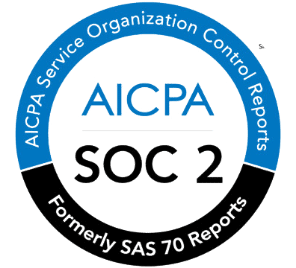Shopping for Estate Planning Software? Suggestions for Finding What’s Best for Your Financial Practice Firm

Estate planning is a critical service offered by most financial practice firms.
It involves helping clients safeguard their wealth, prepare for the future, and ensure their wishes are honored.
As the industry evolves, technology has become a cornerstone of this process, with estate planning software playing a pivotal role in streamlining operations, enhancing accuracy, and improving client outcomes.
- Financial planners have to wear a number of hats, and having the right software can help make their multiple roles much easier.
- Estate planning software is a key factor in a robust financial planning tech stack, as it allows a financial professional to streamline complex processes, improve accuracy, and provide exceptional client service.
- When deciding on the right estate planning software for your firm, consider things like the features that align with your firm’s needs, the ease of integration with your existing financial planning tools, and the level of support offered by the software provider.
While most financial planners know that estate planning software can make a huge difference in how they approach estate planning, choosing the right software isn’t always straightforward.
With so many options available, you need to make an informed decision that aligns with your firm’s unique needs and goals.
If you are curious about the current features you should expect in an estate planning software package, here are some practical suggestions to help guide your search.
Built by CFP® Professionals,
for CFP® Professionals
Holistiplan was designed by experienced advisors Roger and Kevin to streamline your financial planning process. Achieve more for your clients in less time
Start Your Free 7-Day TrialUnderstanding Your Needs: Define What You’re Looking For
Before you start browsing software options, it’s essential to assess your firm’s specific estate planning needs.
Estate planning software varies widely in terms of features, pricing, and functionality, so you need to know what features will be most important to you, your staff, and your clients.
Ask yourself these questions:
What services does your firm provide?
Most financial planners offer a range of personal finance services designed to help their clients achieve their financial goals and plan for the future.
From creating comprehensive estate plans to managing investments and retirement portfolios, financial planners provide invaluable guidance tailored to their clients’ individual needs.

Some of the most common financial services will often include:

Estate Planning:
Helping to keep track of important documents, such as living trusts, durable power of attorney, health care directives, wills, and other important client documents related to their estate plan and long-term wishes.

Retirement Planning:
Helping clients build strategies to save for retirement, maximize contributions, and manage retirement income effectively.

Investment Management:
Providing advice on portfolio diversification, digital assets, risk assessment, and long-term financial growth in order to prioritize asset protection and long-term growth.

Tax Planning:
Identifying strategies to minimize tax liabilities and maximize deductions, often in conjunction with estate planning tools.

Wealth Preservation:
Developing approaches to protect assets from unforeseen circumstances and ensure financial stability for future generations.
Understanding the specific services your firm provides will help guide your selection of financial planning tools and various types of software, allowing you to cater to your clients’ needs efficiently.
What are your biggest challenges?
Identifying your pain points is critical when choosing any type of software, specifically — in this case — estate planning software.
For example:
- Time-Consuming Processes: Look for software that has automation features, such as document generation or compliance checks, to reduce manual effort and save valuable time. Whether it’s in the area of client onboarding or ongoing document management, automation can significantly streamline workflows and improve efficiency.
- Accuracy Concerns: Seek software with built-in error detection, legal compliance updates, and templates that reduce the risk of mistakes.
- Client Communication Gaps: Opt for platforms with client portals, messaging tools, and real-time collaboration options to enhance transparency and engagement. Recognizing your challenges helps you prioritize software with digital tools that directly address these issues, ultimately improving your firm’s overall performance.
What is your budget?
Your budget will play a major role in determining the software options available to you.
Establishing a clear budget upfront helps you navigate pricing models, whether they involve a one-time purchase or ongoing subscription fees.

It’s also important to factor in potential long-term savings: software that streamlines workflows, improves accuracy, or enhances client experiences can provide a strong return on investment (ROI) over time.
Be sure to account for additional costs, such as training, support, or upgrades, when setting your budget. Striking the right balance between affordability and functionality is key.
How many users need access?
The size and structure of your team will influence the type of estate planning software you choose.
For larger firms, you’ll need a solution that supports multiple user accounts, allows for role-based permissions, and facilitates collaboration between team members.
Smaller firms may prioritize simplicity, focusing on software that’s easy to manage and doesn’t charge per user.
Scalability is also important—consider whether the software can grow with your firm, accommodating new hires or expanded client bases without requiring a complete overhaul. Ensuring the software meets your team’s accessibility needs will help maintain smooth workflows.

Elevate Your Practice with Holistiplan
Holistiplan is trusted by thousands of advisors to deliver faster, more valuable financial plans. Start your free 7-day trial and see the difference for yourself
Get Started TodayKey Features to Look for in Estate Planning Software
When evaluating estate planning software, there are several features that should be high on your priority list.
These features not only enhance functionality but also ensure your firm remains competitive and efficient.
Think about the following:
Document Creation and Management:
Estate planning involves organizing and analyzing estate documents such as a living will, a healthcare directive, a durable power of attorney, and various trust documents.

While some clients will use online will makers to create these legal documents, many will have them drafted by legal professionals. These documents are then passed on to the client or their financial planner for safekeeping and implementation into an individual’s financial portfolio.
Look for software that simplifies this process with customizable templates, automated generation, and secure storage.
Compliance Tools:
Estate planning will always require ongoing adherence to legal regulations and state-specific laws.
For this reason, you need estate planning software that helps you navigate these complexities efficiently.
Choose software that works well with changes in regulations and is easy to update to ensure you’re always operating within legal boundaries.

Client Communication Features:
Effective communication is key to building trust with clients throughout the entire estate planning process.
Software with integrated client portals, messaging tools, and progress tracking can enhance collaboration and transparency.

This can be a key factor in client retention as well as improving overall client satisfaction.
By offering a seamless way for clients to access their documents, communicate with planners, and monitor the progress of their asset map, you are offering estate planning services that set a new standard of efficiency and client satisfaction.
Additionally, enhanced transparency can reduce misunderstandings, streamline workflows, and help build long-term relationships, making your financial practice stand out in a competitive market.
Integration Capabilities:
If you are a seasoned financial planner, chances are you are already using and familiar with a myriad of different types of software.
Whether it be CRM systems to manage client relationships, accounting tools for financial tracking, or asset management software for tracking investments, financial advisors need estate planning software that will easily integrate with other software for a continued seamless workflow.

Estate planning software that connects effortlessly with your existing systems can not only save you time, but will also reduce any errors that are typically caused by manual data transfers.
Reporting and Analytics:
When it comes to estate planning, having access to detailed insights can make all the difference in tailoring solutions for your clients.

Estate planning tools with robust reporting and analytics capabilities allow you to track client progress on key aspects such as asset allocation, trust management, and the organization of online accounts.
These tools also enable you to identify emerging trends and provide personalized, data-driven recommendations that consider tax implications and other legal factors.
User-Friendly Interface:
How easy your estate planning tools are to use and understand can significantly impact the efficiency of your operations. (As well as everyone’s patience!)
Complex, clunky software can slow down workflows and increase the likelihood of errors, making it harder for your team to focus on delivering excellent client service.
Complicated systems can also make it harder for clients to understand and engage with the estate planning process.
When choosing estate planning software, opt for a platform that features an intuitive and easy-to-navigate interface, ensuring that even team members and clients with limited technical experience can quickly adapt.

Scalability:

As your firm expands its client base and adds more financial professionals and financial services, your estate planning software must evolve to meet these new demands.
Scalable estate planning tools are designed to grow with your business, accommodating additional users, managing larger volumes of key estate planning documents, and offer expanded features to handle complex estate plans.
Scalability is essential for a financial firm’s long-term success, as it prevents the need to repeatedly switch platforms as your firm grows. Investing in software with scalable features ensures that you’re prepared for any future changes in both your practice and the estate planning industry as a whole.
Holistiplan: The Shopping for Estate Planning Software Stops Here
When it comes to finding the perfect estate planning software, Holistiplan truly stands out as a comprehensive solution tailored to meet the needs of financial planning professionals everywhere.
With a user-friendly interface, robust features, and seamless integration capabilities, Holistiplan has been created to help financial firms streamline their processes and deliver exceptional service to their current clients and potential ones.
For many clients, estate planning can feel overwhelming. Holistiplan was created to change that.
From easy-to-follow asset reports to regularly reviewed beneficiary reports, Holistiplan ensures that your clients have peace of mind when it comes to their financial futures.
Are you ready to join over 30,000 financial professionals in simplifying the estate planning process for your firm and your clients? Holistiplan has you covered.
Efficiency Meets Value in Financial Planning
Holistiplan bridges the gap between speed and quality, helping advisors like you deliver greater value to every client




